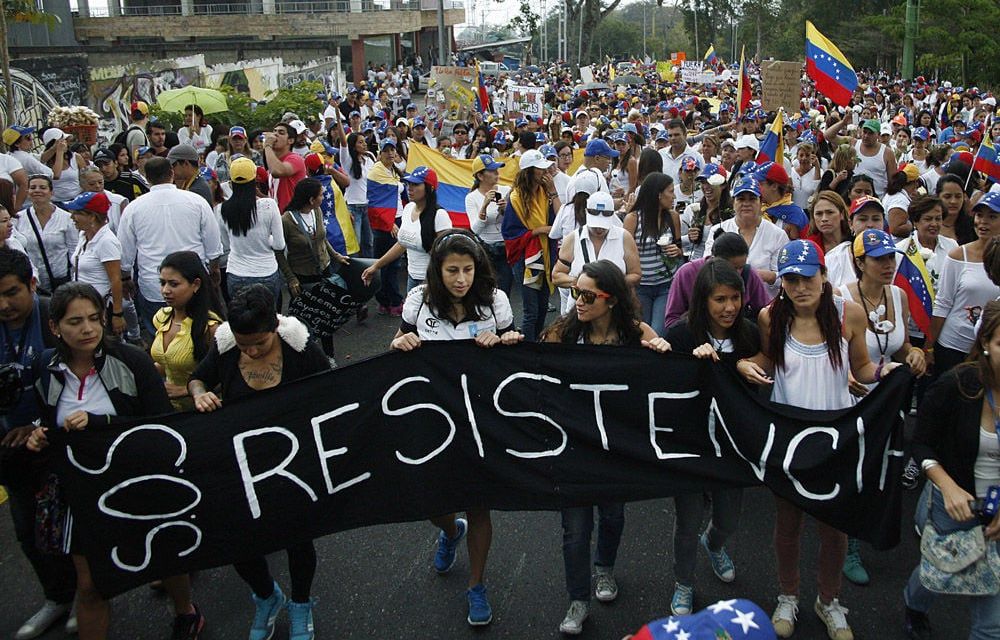Venezuela’s former presidential opposition candidate Edmundo Gonzalez has left the country for Spain following the contested July election, escalating diplomatic tensions between Venezuela and other nations.
Gonzalez, 75, sought refuge in the Spanish embassy in Caracas before departing the country on a Spanish Air Force plane, according to Venezuelan and Spanish officials.
Gonzalez, who ran against President Nicolas Maduro, was accused by Venezuelan authorities of publishing vote tallies that suggested he had won the election.
The government of President Maduro maintains that he was re-elected for a third term, but opposition figures claim that Gonzalez secured a decisive victory.
Gonzalez seeks refuge in Spanish embassy
According to Venezuelan Vice President Delcy Rodriguez, Gonzalez voluntarily sought refuge in the Spanish embassy in Caracas several days ago.
Rodriguez announced the opposition leader’s departure on Instagram, while Spain’s Foreign Minister Jose Manuel Albares confirmed his arrival in Spain.
Albares stated on X (formerly Twitter) that Spain was responding to a formal request from Gonzalez.
The Venezuelan opposition has long contested the election results, accusing the government of manipulating the vote to secure Maduro’s victory.
Election officials and the country’s top court, however, assert that Maduro won re-election.
Opposition groups published what they claimed to be the accurate vote tallies, showing that Gonzalez had won the presidency.
This online release prompted Venezuelan prosecutors to issue an arrest warrant for Gonzalez, charging him with usurping functions, falsifying public documents, and conspiracy.
Venezuela’s growing tensions with South American nations
The contested election has ignited tensions between Venezuela and several South American nations, particularly Argentina and Brazil.
Earlier on Saturday, the Venezuelan government revoked Brazil’s authorization to represent Argentina’s interests in the country.
This decision has complicated Argentina’s diplomatic presence in Venezuela, including its ability to protect opposition figures who have sought asylum in the Argentine embassy.
Venezuela severed diplomatic ties with Argentina following the July presidential election.
Brazil, which had been authorized to represent Argentina’s interests, has joined Colombia and Mexico in urging Venezuela to release the full results of the election.
The Venezuelan government has yet to provide the complete vote count.
Meanwhile, Argentina, Brazil, and other nations have expressed their discontent with Venezuela’s actions, citing violations of international diplomatic agreements, including the Vienna Convention on Diplomatic Relations.
Argentina, Brazil react
In a strongly worded statement, Argentina condemned Venezuela’s decision to revoke Brazil’s diplomatic authorization, calling it a “unilateral” action.
Argentina warned that any attempt to invade the embassy or harm the asylum seekers sheltered there would be met with international condemnation.
“Actions like these reinforce the conviction that in Maduro’s Venezuela, fundamental human rights are not respected,” the statement read. Argentina urged Venezuela to abide by international law and respect diplomatic conventions.
Brazil also expressed its surprise at Venezuela’s decision, stressing that it would continue to safeguard Argentina’s interests until a new arrangement is made.
Brazil reiterated its commitment to protecting the six Venezuelan opposition figures who have sought asylum in the Argentine embassy.
A Brazilian diplomatic source confirmed that Venezuela had provided assurances that it would not invade the embassy or harm those seeking refuge.
However, tensions remain high, and the situation is being closely monitored by international observers.
Surveillance and international intervention
The situation in the Argentine embassy in Caracas has been growing increasingly tense.
Some opposition members who are taking refuge in the building reported on their social media accounts that the embassy was under surveillance by the Venezuelan government’s intelligence agency, SEBIN.
Videos posted online showed men dressed in black and patrols around the embassy, adding to concerns about the safety of the asylum seekers.
Argentina’s Foreign Ministry has called for an International Criminal Court arrest warrant against President Maduro and senior Venezuelan officials.
This request stems from alleged human rights abuses that took place after the disputed election. Argentina and other countries are pressuring the Venezuelan government to ensure the safety of opposition figures and to respect diplomatic immunity.
A broader geopolitical impact
The political crisis in Venezuela is not only affecting relations within South America but also drawing international attention.
Venezuela’s electoral dispute is intensifying the divide between the Maduro government and countries advocating for greater transparency and democratic reforms in the region.
Gonzalez’s departure to Spain has further strained Venezuela’s diplomatic relations with the European Union, which has been critical of the election’s handling and has called for fair democratic processes.
As Gonzalez settles in Spain, his escape underscores the continued struggle for power and legitimacy in Venezuela, raising questions about the country’s political future.
The departure of Edmundo Gonzalez marks a significant chapter in Venezuela’s political crisis. As tensions rise both domestically and internationally, the path forward remains uncertain.
Countries in South America and beyond are likely to continue pressuring Venezuela for greater transparency, but the Maduro government shows no signs of changing its stance on the contested election.
The international community will watch closely as the situation evolves, especially in light of the ongoing diplomatic rift with Argentina, Brazil, and other nations.
The post Venezuela opposition candidate Edmundo Gonzalez flees to Spain amid diplomatic tensions appeared first on Invezz

